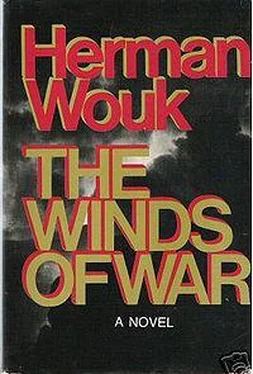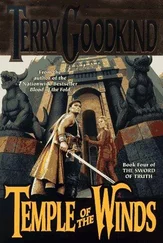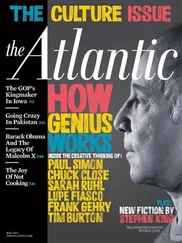Herman Wouk - The Winds of War
Здесь есть возможность читать онлайн «Herman Wouk - The Winds of War» весь текст электронной книги совершенно бесплатно (целиком полную версию без сокращений). В некоторых случаях можно слушать аудио, скачать через торрент в формате fb2 и присутствует краткое содержание. Год выпуска: 1971, Издательство: Collins, Жанр: Историческая проза, на английском языке. Описание произведения, (предисловие) а так же отзывы посетителей доступны на портале библиотеки ЛибКат.
- Название:The Winds of War
- Автор:
- Издательство:Collins
- Жанр:
- Год:1971
- ISBN:нет данных
- Рейтинг книги:4 / 5. Голосов: 1
-
Избранное:Добавить в избранное
- Отзывы:
-
Ваша оценка:
- 80
- 1
- 2
- 3
- 4
- 5
The Winds of War: краткое содержание, описание и аннотация
Предлагаем к чтению аннотацию, описание, краткое содержание или предисловие (зависит от того, что написал сам автор книги «The Winds of War»). Если вы не нашли необходимую информацию о книге — напишите в комментариях, мы постараемся отыскать её.
About the Author
Herman Wouk's acclaimed novels include the Pulitzer-Prize winning
;
;
;
;
;
; and
.
The Winds of War — читать онлайн бесплатно полную книгу (весь текст) целиком
Ниже представлен текст книги, разбитый по страницам. Система сохранения места последней прочитанной страницы, позволяет с удобством читать онлайн бесплатно книгу «The Winds of War», без необходимости каждый раз заново искать на чём Вы остановились. Поставьте закладку, и сможете в любой момент перейти на страницу, на которой закончили чтение.
Интервал:
Закладка:
“You’re talking about an illegal entry, then.” Jastrow sounded severe.
“If it can be illegal for a Jew to go home, yes. We don’t think so. In any case, there’s no choice for my passengers. They’re refugees from the Germans, and all other countries have barred the doors to them, including your United States. They can’t just lie down and die.”
“That isn’t our situation,” Jastrow said, “and what you’re proposing is unsafe.”
“Professor, you’re not safe here.”
“What organization are you with? And what would you charge?”
“My organization? That’s a long story. We move Jews out of Europe. As for paying — well, one can talk about that. You can ask Mr. Rose. That’s secondary, though we can always use money. I came to Rome in fact for money. That’s how I met Mr. Rose.”
“And once we get to Palestine — then what?”
Rabinovitz gave him a warm, agreeable look. “Well, why not just stay? We would be honored to have a great Jewish historian among us.”
Natalie put in, “I have a two-month-old infant.”
“Yes, so Mr. Rose said.”
“Could a small baby make that trip?”
Halting at the main altar, Rabinovitz stared in admiration at the twisted pillars. “This cathedral is so rich and beautiful. It’s overwhelming, isn’t it? Such a gigantic human effort, just to honor one poor Jew executed by the Romans. And now this building dominates all Rome. I guess we should feel flattered.” He looked straight in Natalie’s eyes in a forceful way. “Well, Mrs. Henry, haven’t you heard the stories coming from Poland and Russia? Maybe you should take some risk to get your baby out of Europe.”
Aaron Jastrow said benignly, “One hears all kinds of stories in wartime.”
“Mr. Rabinovitz, we’re leaving in less than two weeks,” Natalie said. “We have all our tickets, all our documents. We were at tremendous pains to get them. We’re flying home.”
Rabinovitz put a hand to his face and his head swayed.
“Are you all right?” Natalie touched his arm.
He uncovered a knotted brow, and smiled painfully. “I have a headache, but that is all right. Look, Mr. Herbert Rose had an airplane ticket too, and he’s coming to Naples with me. If you join us, you’ll be welcome. What more can I say?”
“Even if we did want to consider this drastic move, we couldn’t get our exit visas changed,” Jastrow said.
“Nobody will have an exit visa. You will just come aboard to pay a visit. The ship will leave, and you will forget to go ashore.”
“If one thing went wrong, we’d never get out of Italy,” Jastrow persisted, “until the war ended.”
Rabinovitz glanced at his watch. “Let’s be honest. I’m not sure you will get out anyway, Dr. Jastrow. Mr. Rose told me about the difficulties you’ve been having. I don’t think they’re accidental. I’m afraid you’re what some people call a ‘blue chip’” — he used the American slang haltingly — “and that’s your real problem. The Italians can trade you someday for a lot of ‘white chips,’ so something can always go wrong at the last minute when it’s time to leave. Well, meeting you was a great honor. If you come along we’ll talk some more. I have many questions about your book. Your Jesus had very little to do with this, did he?” He swung both his hands around at the cathedral.
“He’s a Jew’s Jesus,” said Jastrow. “That was my point.”
“Then tell me one thing,” said Rabinovitz. “These Europeans worship a poor murdered Jew, the young Talmud scholar you wrote about so well — to them he’s the Lord God — and yet they go right on murdering Jews. How does a historian explain that?”
In a comfortable, ironic, classroom tone, most incongruous in the circumstances, Jastrow replied, “Well, you must remember they’re still mostly Norse and Latin pagans at heart. They’ve always chafed under their Jewish Lord’s Talmudic morals, and possibly they take out their irritation on his coreligionists.”
“Now that explanation hadn’t occurred to me,” Rabinovitz said. “It’s a theory you should write up. Well, let us leave it this way. You want to think it over, I’m sure. Mr. Rose will telephone you tonight at six o’clock and ask you whether you want the tickets for the opera. Tell him yes or no, and that will be that.”
“Good,” Natalie said. “We’re deeply grateful to you.”
“For what? My job is moving Jews to Palestine. Is your baby a girl or a boy?”
“Boy. But he’s only half-Jewish.”
With his crafty grin, and an abrupt handwave of farewell, Rabinovitz said, “Never mind, we’ll take him. We need boys,” and he walked rapidly away. As his plump figure merged into a tourist group leaving Saint Peter’s, Natalie and her uncle looked at each other in puzzlement.
It’s freezing in here,” said Dr. Jastrow, “and very depressing. Let’s go outside.”
They strolled in the sunshine of the great piazza for a while, talking the thing over. Aaron tended to dismiss the idea out of hand, but Natalie wanted to give it thought and perhaps discuss it with Rose. The fact that he was going troubled her. Jastrow pointed out that Rose was not as secure as they were. If war should break out between the United States and Italy — and that was the threat in the Japanese crisis — they had the ambassador’s promise of seats on the diplomatic train, with the newspaper correspondents and the embassy staff. Rose had no such assurance. Earlier in the year, the embassy had given him warning after warning to leave. He had chosen to stay at his own risk, and now he had to face the consequences. If he wanted to chance an illegal exit, that did not mean they needed to.
At the hotel, Natalie found the baby awake and fretful. He seemed a frail small creature indeed to expose to a sea voyage uncertain even in its destination, let alone its legalities; a voyage in a crowded old tub — no doubt with marginal food, water, sanitation, and medical service — that might lead to a rough trip through mountains; the goal, a primitive and unstable land. One look at her baby, in fact, settled Natalie’s mind.
Rose called promptly at six. “Well, do you want the opera tickets?” His voice on the telephone was friendly and, it seemed, anxious.
Natalie said, “I think we’ll skip it, Herb. But thank your friend who offered them.”
“You’re making a mistake. Natalie,” Rose said. “I think this is the last performance. You’re sure?”
“Positive.”
“Good luck, kid. I’m certainly going.”
Janice Henry left her house and drove toward Pearl City in a cool morning echoing with distant church bells. Vic had wakened her at seven o’clock, coughing fearfully; he had a fever of almost 105. Yawning on the telephone, the doctor had prescribed an alcohol rub to bring the baby’s temperature down, but there was no rubbing alcohol in the house. So she had given the fiery, sweat-soaked little boy his cough medicine, and set out for town, leaving him with the Chinese maid.
From the crest of the hill, under a white sun just climbing up from the ocean rim, the harbor wore a Sabbath morning mist: a scattering of cruisers, oilers, and tenders, clusters of gray destroyers and minesweepers, nests of black submarines. Off Ford Island, the battle ships stood in two majestic lines with white sun-awnings already rigged; and on the airfield nearby dozens of planes touched wings in still rows. Scarcely anybody was moving on the ships, the docks, or the airfield. Nor was any large vessel under way to ruffle the glassy harbor. Only a few church party boats, with tiny sailors in whites, cut little foamy V’s on the green still water.
Janice got out of the car to look for her husband’s ship. To her disappointment, the Enterprise was not only absent from the harbor, it was nowhere in sight on the sea. She had been counting on a Sunday morning return. She took binoculars from the glove compartment and scanned the horizon. Nothing: just one old four-piper poking around, hull down. Tuesday would be two weeks that Warren had been gone; and now here she was with a sick baby on her hands, and a hangover. What a life! What a bore!
Читать дальшеИнтервал:
Закладка:
Похожие книги на «The Winds of War»
Представляем Вашему вниманию похожие книги на «The Winds of War» списком для выбора. Мы отобрали схожую по названию и смыслу литературу в надежде предоставить читателям больше вариантов отыскать новые, интересные, ещё непрочитанные произведения.
Обсуждение, отзывы о книге «The Winds of War» и просто собственные мнения читателей. Оставьте ваши комментарии, напишите, что Вы думаете о произведении, его смысле или главных героях. Укажите что конкретно понравилось, а что нет, и почему Вы так считаете.












